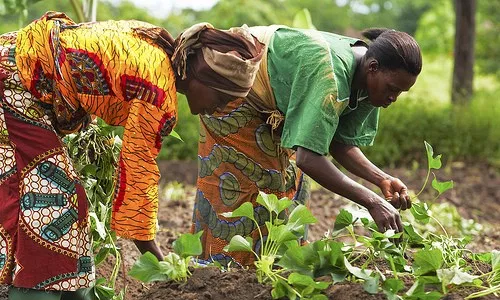The government of Japan is investing an estimated US$600,000 into soya-bean production in a bid to improve the cereal’s entire value chain in the country, Ambassador of Japan to Ghana Mochizuki Hisanobu has disclosed.
The project, which falls under the Ghana Food Systems Transformation Pathway, according to the Ambassador exemplifies Japan’s continuous effort to support agriculture in the country.
The venture is aimed at tackling some basic constraints to the development of soya-bean in Ghana, which include limited access to and lack of improved certified seeds; poor land preparation and access to mechanisation for land preparation; and lack of access to inoculants.
“Japan considers agriculture as one of the primary areas of support for Ghana; and the reason we support it is that the sector is closely connected to this country’s food security agenda,” Mr. Hisanobu said.
He commended the Food and Agriculture Organisation (FAO) and Ministry of Food and Agriculture (MoFA) for their commitment toward the project in support of Ghana’s soybean development programme.
FAO’s Regional Representative to Ghana, Dr. Yurdi Yasmi, said the project to support the country’s soya-bean value chain is in tandem with the UNFAO’s Global Action on Green Development of Special Agricultural Products, also known as ‘One Country, One Priority Product’ (OCOP).
Dr. Yasmi emphasised the significance of soya-bean to the agrifood systems transformation of Ghana, as the legume has potential to increase employment; increase incomes of rural communities; and contribute to growth of the livestock and poultry sectors.
Under the project, Dr. Yasmi indicated that the FAO will embark on massive capacity development, sensitisation and public education on consumption of soya-bean. This, according to him, will contribute to increased consumption of nutritious foods and reduce malnutrition.
He added that his outfit will support MoFA in the Planting for Food and Jobs programme’s second phase to develop the agricultural sector.
Minister of Agriculture, Bryan Acheampong, said the soya project forms an integral part of the PFJ phase-two, as government is determined to transform the agricultural value chain for economic growth with active private sector participation in eleven focal commodities, including soya.
“The soya-bean intervention objective under the PFJ phase-two is aimed at increasing production to meet local demands, export and create employment for the youth,” Dr. Acheampong said.
Local soya bean production trends
Local demand for soya-bean, according to the FAO, is in excess of 450,000 metric tonnes per annum, as the country imports soymeal worth US$30million each year.
Last year, Ghana’s total soya-bean production and consumption was 255,209 metric tonnes according to MoFA.
However, Dr. Acheampong said this new soya initiative could increase production from a little over 255,000 tonnes to one million metric tonnes by 2027.










